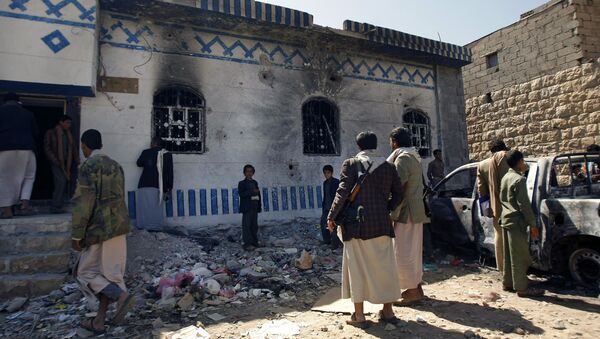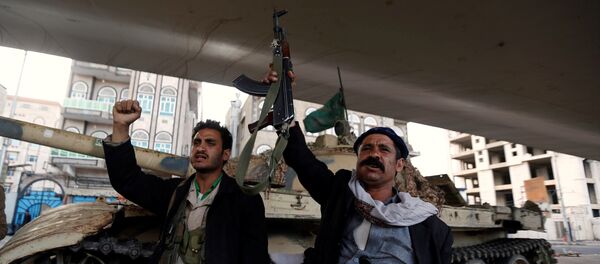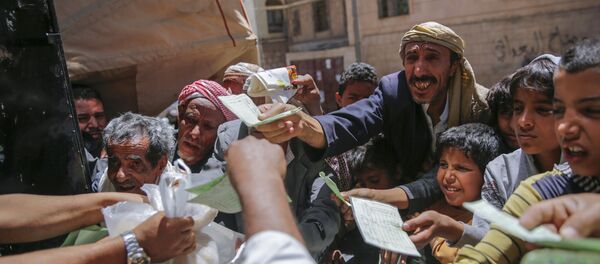The assassination of former Yemeni president Ali Abdullah Saleh on December 4 has not led to long-anticipated reconciliation while US President Donald Trump's recognition of Jerusalem as the capital of the Israeli state threatens to plunge the region into a new cycle of violence, Yemeni political scientist Abu Bakr Bazib told Sputnik Arabic.
"After the murder of ex-president Saleh, the warring parties in Yemen were close to a peaceful solution," Bazib suggested. "However, there was not enough pressure to force them to effectively implement it, thus, as a result, the situation remained the same."
The political scientist pointed out that Saleh's death was followed by Trump's Jerusalem move, which caused a wave of protests in the Arab world. The growing discontent with Washington's decision may result in further destabilization, Bazib foresees, expressing concerns that war-torn Yemen may fall easy prey to the Mideast power games.
"[Yemen] may be involved in a new spiral of wars in the region," the political scientist warned.
"The aggressors have realized that neither the military operation nor the economic blockade had worked," al-Bahri told Sputnik. "The death of Ali Abdullah Saleh — their last trump card and project — proved that their Yemeni campaign has failed."
The politician believes that the Arab coalition will have to reconcile itself to the situation on the ground, stop their aggression and start seeking a peaceful resolution of the Yemeni conflict.
On November 6 the Arab coalition restricted the transportation of food, fuel and medicine into the war-torn country, after a ballistic missile was fired at the direction of Riyadh from Yemen. The rocket was successfully intercepted by Saudi missile defense systems.
The UN humanitarian coordinator in Yemen, Jamie McGoldrick, called upon all the parties involved in the conflict to "facilitate sustained and unimpeded humanitarian access as required by international humanitarian law," stressing that "it is in the interest of everybody" to stop the war in Yemen.
Earlier, on December 7, President Trump instructed his administration "to call the leadership of the Kingdom of Saudi Arabia [KSA] to request that they completely allow food, fuel, water and medicine to reach the Yemeni people, who desperately need it."
The Yemeni civil war erupted in 2015 between the internationally recognized government of President Abd Rabbuh Mansur Hadi backed by the Arab coalition and the Houthi rebel movement initially supported by military units loyal to former President Saleh. He was assassinated by his former allies on December 4. Saleh's death has prompted Mansur Hadi to call upon the Yemenis to team up in order to defeat the Houthis.
Just two days after the murder of the Yemeni politician US President Donald Trump made an announcement recognizing Jerusalem as the capital of Israel and ordering the State Department to move the US Embassy in Israel to Jerusalem from Tel Aviv.
The move has triggered fierce protests on the part of the Palestinians and Muslims around the world. The EU leadership expressed their concerns about Trump's decision, stressing that it creates a substantial obstacle in the way of the peaceful resolution of the Palestinian-Israeli conflict.
During his working visit to Ankara, Russian President Vladimir Putin underscored that he and his Turkish counterpart Recep Tayyip Erdogan regard Trump's move as "destabilizing the already complicated situation in the region."
The views and opinions expressed by Abu Bakr Bazib and Ahmed al-Bahri are those of the speakers and do not necessarily reflect those of Sputnik.




